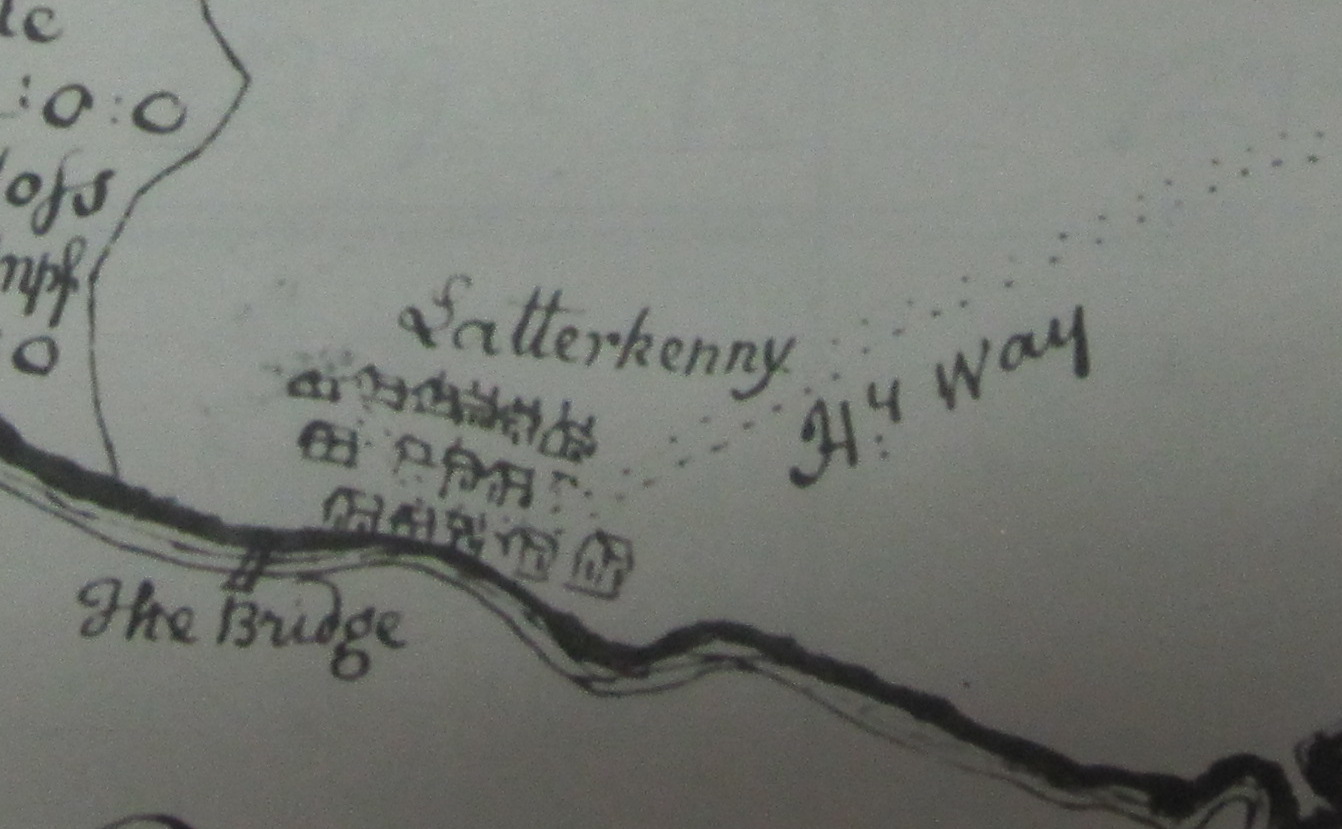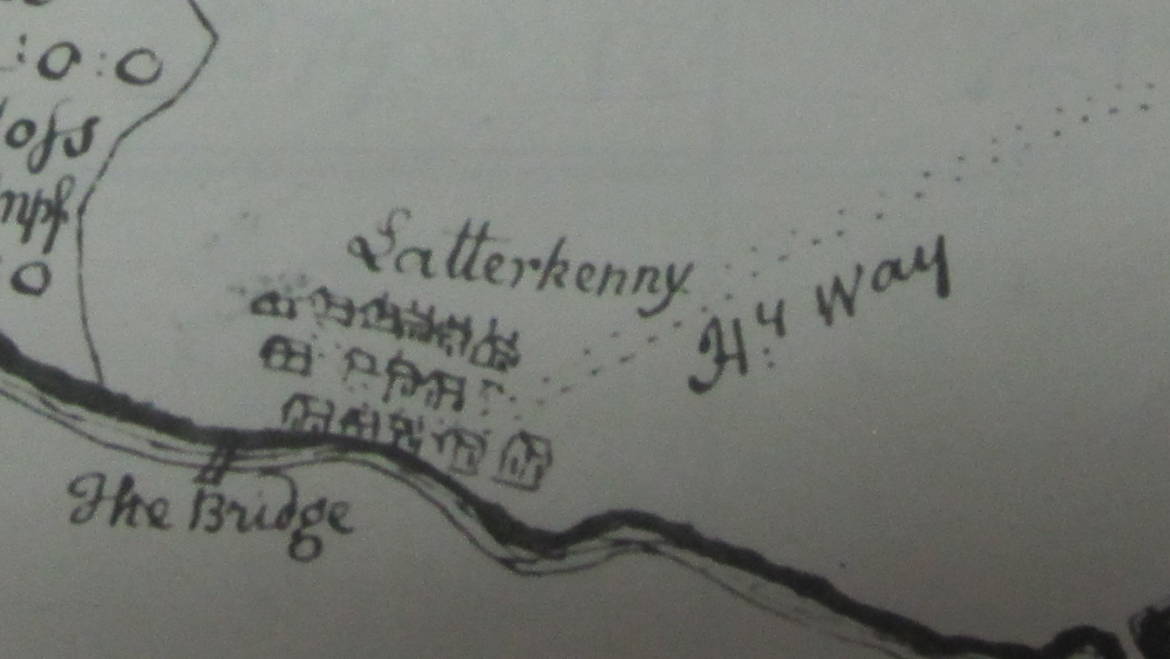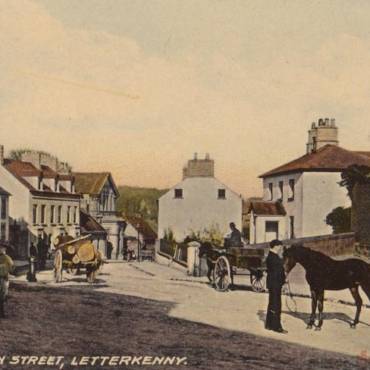Letterkenny in 1625
As we have seen in previous posts, the lands on which a new town was to be built were first granted to Captain Patrick Crawford in 1611. After his death in 1615, his wife Johanna married Sir. George Marbury and it was he who received the Market Patent for the town in 1616. By 1619, significant progress in the development of Letterkeny was noted by surveyor Nicholas Pynnar:
“Captain Craifford was the first Patentee. Sir George Marburie hath 1,000 acres called Letterkenny. Upon this there is built a Bawne of lime and stone 60 feet square, with two flankers 12 feet high and standeth waste. Near adjoining to this Bawne there is built a Township wherein there is 40 houses wherein he dwelleth, and all these houses are inhabited with British tenants, being able to make 50 men. It is a great Market Town and standeth very well for the King’s service.”
A bawne was a concrete enclosure with a yard within and derives from the Gaelic for ‘cow barn’. It was another condition of the Plantation that these 12 feet high walls were built for defence purposes against the native Irish. Generally, the market area was built in front of this bawne and the houses of the new town were built quite close to it. From this we can surmise from the location of the Market Square today that this bawne was located approximately were Mount Southwell Place is and the first houses of the town were built in close proximity to it.
By 1625, the town of Letterkenny had grown significantly under Sir George and Lady Joanna Marbury, although it would appear to have been a town of quite ill repute. Marbury appears to have been a stern and authoritive figure, with power solely vested in him. Robert Cartwright, the Donegal Provost Marshall, made a visit to the town and had an altercation with several men who had escaped from jail. Marbury informed the Marshall that he was solely in charge of the town and that he would set free anybody that he locked up. In a letter dated 28th January 1625, Cartwright gives us an interesting glimpse into the early development of Letterkenny (NB: the Old English of the original letter has been translated for ease of reading and the keys descriptions underlined).
“…One day I went into a market town of Sr. George Merburries and cut about ten or twelve mantles, whereof he made a grievous complaint to all the justices of peace, and threatened to indict me for it in the Star Chamber, saying moreover that it was an ill business of your Lord to make a marshall in his county, and it is very well known that willingly he will not suffer neither sheriff nor any other officer to exercise any authority in that town, and yet himself a man of so evil government, and given to drinking as makes himself a laughing stock and scorn to the country, and although I have ever observed him (with too much subjection) to hold friendship with him (being near neighbours) yet his disarming first on of my men, and then the other also, commanding the constable to put him in the stocks without any occasion given, but only to let his town know that he had power to do any thing there that pleased him, and at my next meeting with him he told me that he was sending my man to the stocks, I told him that I hoped that he had some other better reason than because he was my man, to which he answered that if either my man or myself came into his town to do any thing he would there disarm us and send us both to the jail…
…an opinion that was roused, that I neither had power nor durst do any thing there but by his consent, which appeared to be true, for having formerly acquainted him that divers lewd fellows frequented his townand used to play there for 4 or five days together, whereof some of them had formerly broken jail, yet nothing was done, nor said against them, and when news was brought me afterwards that they had been there from Friday until Tuesday playing all the clothes on their backs, I went thither and apprehended two of the gamesters but the two principal men that I looked for were conveyed away, the one through a window, and the other at a back door, and the party that conveyed them away, and the two other gamesters I delivered unto the constable with a mittimus to carry them to the jail, but Sr. George took them away from him and set them at liberty, saying that he would discharge as many as I should commit.”




